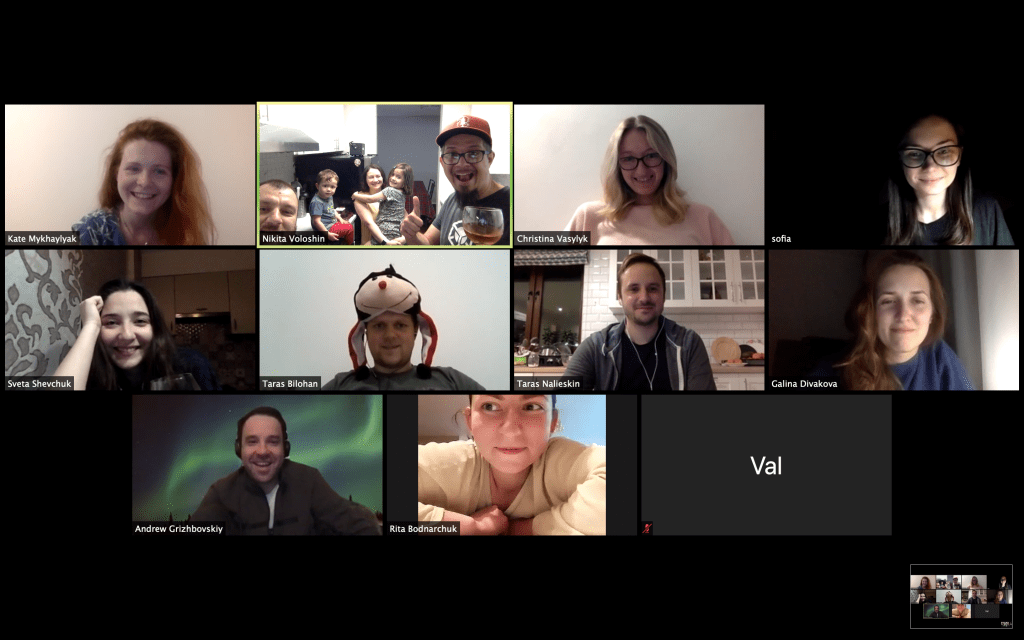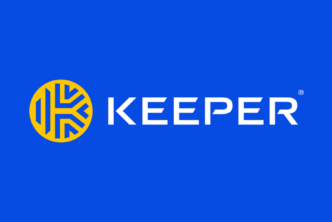Culture fit is an obvious concern for businesses making their first remote hire. It’s different when everyone’s working in the same office: people naturally get to know each other through hundreds of small exchanges during the day. New employees soak the company culture at a visceral, almost magical level — similar to how children learn to talk without any systematic effort from their parents.
Remote work is a different matter. When all the exchanges are limited, scheduled, and happening via Zoom, little room remains for this magic to take place. Naturally, as employers, we start believing that our task to choose the RIGHT person from the very beginning becomes even more crucial.
I personally share the “Good to Great” approach, which says that your focus must be on getting the right people on the bus in the first place. If you get your recruitment right, the culture would emerge naturally – as it always does when similar-minded people are gathered in one place. Even if that ‘place’ is virtual.
As an early adopter of remote work, all of my businesses have adhered to a “remote-first” protocol for the last 10 years. Here some of the key things I learned.
 How do I decide if a person is a culture fit or not in remote interviews?
How do I decide if a person is a culture fit or not in remote interviews?
I know our company’s values, and I ask candidates about theirs to see if they match.
To me, the values match is more important than professional qualification. Of course, a person has to possess all the necessary skills and experience to get the job. Yet while some professional skills can be acquired over time, changing one’s values is another matter.
Values cannot be just forced onto your employees: they are formed organically by a team through the shared view of the world. The mix of those common values forms the company’s unique culture.
YouTeam’s values emerged from 2 basic principles:
1. We are a startup
A startup can only grow quickly if it can offer a solution that is better than the status quo. That is why the main activity of an early-stage startup is experimentation.
What does this mean in terms of company culture and expectations from each team member?
We love to experiment
We are not just “ready for change” — we LOVE change. We are motivated by the search for truth, a journey into the unknown, or just testing new ideas.
We love what we do
The problem we are solving is important to us. We enjoy the process and the way we grow on our journey. We are proud to be on the cutting edge of progress — and that our solutions will be the roadmap for those who will follow.
Freedom and responsibility
We don’t wait for instructions: we find solutions ourselves and we are not afraid to propose changes.
The biggest mistake is to be afraid of making one
John Stuart Mill put this best: “The source of everything respectable in man, either as an intellectual or as a moral being, is that his errors are corrigible.”
I am trying to maintain an environment where honest mistakes are tolerated. Mistakes are our modus operandi. We make a lot of them, learn from them, and thus move forward. Inaction and analysis-paralysis, in turn, are not welcome.
2. We are a remote-first company
Even before the COVID-19-induced lockdown, our team was split across five locations and three time zones. The differences between a distributed team and a co-located team are especially strong when it comes to the company’s culture and communication.
An office when you want it
Each member of our team has a place of work in our Bay Area or Europe offices — this is a benefit, not an obligation. We come to the office when we want to collaborate with other team members offline — but we are free to work from anywhere else.
Flexible work hours
YouTeam values results, not any particular process. As long as you and your team are collaborating successfully, the hours you work are your own business.
We put everything in writing
This is probably the most crucial difference between the remote and co-located work setting. If I was obliged to have just one single rule for the remote time – this would be the one.
There are at least 3 reasons why writing is better than talking:
1. Written form disciplines thought and forces you to keep it short;
2. All communication is getting saved with no extra effort – which proves vital in case you need to involve more stakeholders in the future or revisit the decisions that have been made;
3. Textual content is searchable. Yes, you can record zoom meetings. But have many of those recordings did you actually watch?
We over-communicate
Since we don’t all sit in the same office, we can’t expect the rest of the team to know what we’re doing by default. This requires a conscious and systematic effort to over-communicate the following four principles:
1. We are responsible for letting the team know what we are doing.
2. Important messages should be repeated several times to ensure they’ve been delivered.
3. We respond to our colleagues like it’s our sacred duty.
What are some interview questions to ask to find out if a candidate fits my company’s culture and values?
Here are some examples of real questions I ask during job interviews:
- Why did you leave your previous employer?
- Why did you choose to interview at YouTeam? What is special about us?
- What makes you an ideal candidate for this position?
- Tell me about one thing you did in your life — not necessarily work-related — which makes you feel proud?
- Can you recall a situation from the past when you faced a problem that seemed unsolvable? What did you do?
- Why did you choose <profession> career?
- What do you think makes a great <profession>?
- Describe a situation from your past when you helped someone — again, not necessarily work-related.
- Where do you see yourself in five years? What are you doing?
- What was the last book you read?
- What is a part of your daily routine as <profession> that you wouldn’t mind doing more — even if you weren’t paid extra for doing it?
- Tell me about a past failure. Something you are not proud of and would not like to repeat.
- Do you have a role model? Who is it, and why?
- Would you like to learn how we handle remote work here at YouTeam? Can you share your own experience with remote?
The main challenge when interviewing job candidates is to remain unbiased, free of personal judgments, preferences, moods, etc. This is why you need to come up with a robust framework to compare all candidates and ask the same questions to every candidate.
It can also help to do the final assessment the day after the interview — again, this allows some time for unfair emotional evaluations to fade away.
Lastly, it’s important to remember the law of recruitment: no hire is better than a bad hire.
Good luck!




